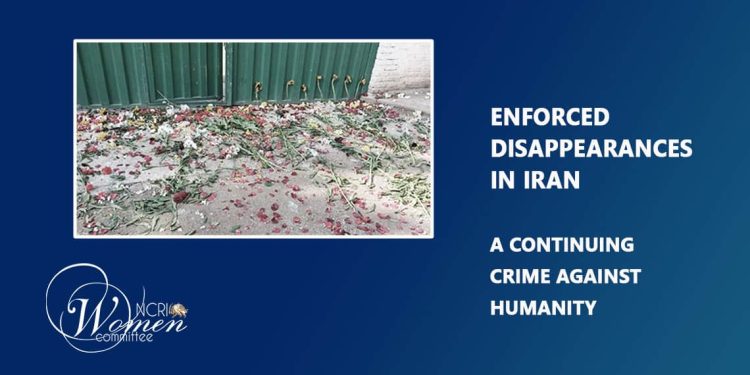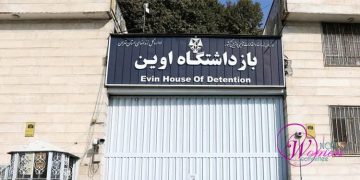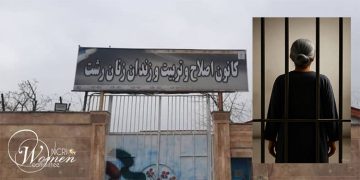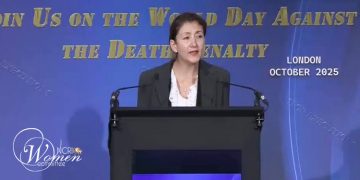Every year on August 30, the world marks the International Day of the Victims of Forced Disappearances, a somber occasion to reflect on the ongoing plight of those who have vanished under repressive regimes.
In Iran, forced disappearances have long been used as a tool of political repression, beginning with the mass executions in the early 1980s, the 1988 massacre of political prisoners, and continuing into the present day.
This dark chapter in Iran’s history is emblematic of the broader issue of enforced disappearances, which remain a persistent human rights violation in the country.
The 1988 Massacre: A Legacy of Horror
In the summer of 1988, the Iranian regime carried out a systematic massacre of thousands of political prisoners, most of whom were members or sympathizers of the People’s Mojahedin Organisation of Iran (PMOI/MEK) and included members of other leftist political groups. This atrocity, which was initiated by a fatwa from the mullahs’ then-Supreme Leader Ruhollah Khomeini, involved the summary execution and enforced disappearance of an estimated 30,000 individuals. The victims were buried in secret mass graves, and their families were left in anguish, denied information about their loved ones’ fates.
For decades, the Iranian regime has continued to conceal the locations of the mass graves and the identities of those responsible for these crimes, which amount to crimes against humanity.
The perpetrators of the 1988 massacre have not only evaded justice but have often ascended to powerful positions within the regime. For instance, Ebrahim Raisi, who served as a member of the “Death Commission” responsible for these executions, later became the President of the clerical regime.
Despite the passage of more than three decades, the pain of the 1988 massacre persists, as the families of the victims continue to seek answers and justice.

New Victims, Same Injustice
A decade after the 1988 massacre, the Iranian regime once again resorted to brutal repression to silence dissent. On July 9, 1999, students at the University of Tehran staged peaceful protests against increased press restrictions. In response, over 1,300 security forces, including plainclothes agents, launched a violent crackdown on the university’s dormitories.
The attack, which occurred at 4:00 AM, left at least three students dead and 200 injured. The brutality of the crackdown sparked nationwide protests, which were met with further violence. By the end of the six-day uprising, 17 students had been killed, and more than 1,500 were arrested.
Among those who disappeared during this period was Fereshteh Alizadeh, a student activist from Al-Zahra University. Alizadeh was last seen during the attack on the University of Tehran dormitories, and her fate remains unknown to this day.
Four years later, Ali Akbar Mousavi Khoeini, a member of the mullahs’ Sixth Parliament, stated that Alizadeh was abducted by security forces, with no organization taking responsibility for her disappearance. Amir Farshad Ebrahimi, a former member of Ansar-e Hezbollah who later fled Iran, reported that Fereshteh Alizadeh died under torture after being detained and was buried in Khavaran Cemetery.
The trauma of her abduction led to her mother’s death from a stroke.

Another victim was Saeed Zinali, a computer science student at the University of Tehran. Zinali was arrested at his home on July 14, 1999, just days after the protests began, and has not been seen since. His family, particularly his mother, Akram Neghabi, has spent over two decades seeking information about his whereabouts, only to be met with silence and harassment from the authorities.
Alizadeh and Zinali are emblematic of the victims of enforced disappearances in Iran. Despite the passage of time, their families continue to suffer, denied the closure that comes with knowing the fate of their loved ones.
This inhuman practice has continued to date, with thousands of individuals being arrested, tortured, and killed in secret during the uprisings of 2017, 2018, 2019, and 2022, without their families knowing anything about their fates.
The clerical regime’s refusal to acknowledge these disappearances, coupled with the persecution of those who seek justice, underscores the regime’s commitment to maintaining a climate of fear and impunity.
The Call for Accountability: Javaid Rehman’s Report
In recent years, the international community has increasingly recognized the need for accountability for the crimes committed in Iran, both past and present.
Javaid Rehman, the UN Special Rapporteur on the situation of human rights in Iran, has been a vocal advocate for justice. In his final report before the end of his mandate in July 2024, Rehman called for the establishment of an independent international mechanism to investigate and prosecute serious crimes in Iran, including enforced disappearances.
Rehman emphasized that the Iranian regime’s ongoing concealment of the fate of thousands of political opponents constitutes a crime against humanity. He highlighted the need for UN member states to use universal jurisdiction to hold the perpetrators accountable, arguing that the lack of justice in Iran has perpetuated a cycle of violence and repression.
Rehman’s report also documented other serious human rights violations, including the mass killing of protesters, torture, arbitrary arrests, and executions during the nationwide protests of 2009, 2019, and 2022.
One of the most poignant examples of the Iranian regime’s repression is the case of Maryam Akbari Monfared, a political prisoner who has been imprisoned for 15 years for seeking justice for her siblings, who were executed during the mass executions in the 1980s and the 1988 massacre.
Despite facing increased pressure and additional charges for her activism, Maryam Akbari Monfared has refused to retract her call for accountability. Her case illustrates the lengths to which the Iranian authorities will go to silence those who demand justice, even when they are imprisoned.

Forced Disappearances and the Unrelenting Pursuit of Justice
In remarks made during a meeting on August 28, 2024, regarding the Iranian regime’s crimes against humanity in the 1980s and in 1988, Professor Javaid Rehman asserted:
In addition to the mass murder, summary, arbitrary, and extrajudicial executions, as well as enforced disappearances of thousands of political prisoners, evidence received confirms that political prisoners who were executed and those who survived the massacre suffered from the most severe forms of physical and mental torture and other cruel inhuman and degrading treatment.
These constitute crimes against humanity and as mentioned, the crime against humanity of enforced disappearances remains a continuing crime until the fate of the disappeared persons and the facts remain uncleared. The victims, thousands of them, were buried in secret and unmarked individual and mass graves across Iran.
And the perpetrators, to the great tragedy of all of us, have thus far evaded accountability and justice. Moreover, the families of the victims continue to be denied the right to know the truth.
They are not able to obtain closure as the authorities refuse to clarify the fate of the victims and disclose the whereabouts of their remains, which means that the victims of the 1988 massacre remain forcibly disappeared.
What I have called the atrocity crimes, in particular, the 1988 massacre represent the commission of the worst and the most egregious human rights abuses of our living memory, whereby high-ranking state officials connived, conspired, and actively engaged to plan, order, and commit crimes against humanity and genocide against nationals of their own state.
Notwithstanding the availability of overwhelming available evidence, to this day, those with criminal responsibility for these grave and most serious violations of human rights and crimes under international law remain in power and in control. The international community has been unable or unwilling to hold these individuals accountable.

A Call to Action: Ending Impunity in Iran
The ongoing human rights violations in Iran, including enforced disappearances, arbitrary executions, and the persecution of dissenters, demand a robust response from the international community.
As Rehman and other human rights advocates have argued, the establishment of an independent international investigative mechanism is essential to ensure that the perpetrators of these crimes are held accountable. The use of universal jurisdiction to prosecute individuals responsible for crimes against humanity and genocide in Iran would send a powerful message that impunity will not be tolerated.
On August 20, 2024, some 345 current and former UN and international human rights and legal experts and organizations as well as Nobel laureates and statesmen serving democracy and human rights penned a letter to the UN High Commissioner for Human Rights, following the landmark report by Prof. Javaid Rehman. They urged the UN High Commissioner to establish an international accountability mechanism to take actionable measures aimed at ending impunity for Iran’s atrocity crimes, chief among them the 1988 massacre.
The families of the victims continue to seek justice, even in the face of threats and persecution. As the international community marks the International Day of the Victims of Forced Disappearances, it is crucial to stand in solidarity with these families and to demand accountability for the crimes committed in Iran.
The time has come for the world to act decisively to end the culture of impunity in Iran. By supporting the establishment of an independent international mechanism and using universal jurisdiction to prosecute the perpetrators, the international community can help bring justice to the victims of enforced disappearances and other serious human rights violations in Iran.
The voices of the victims of forced disappearances and their families must not be silenced any longer.























